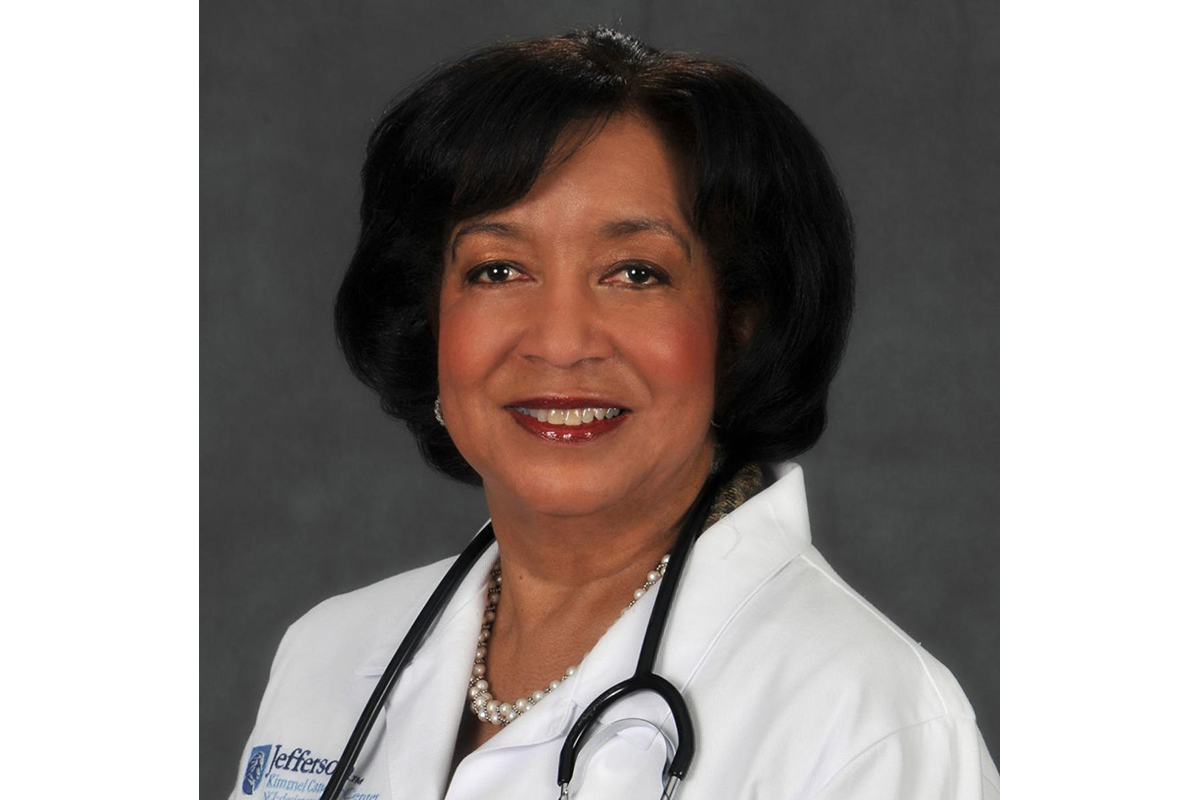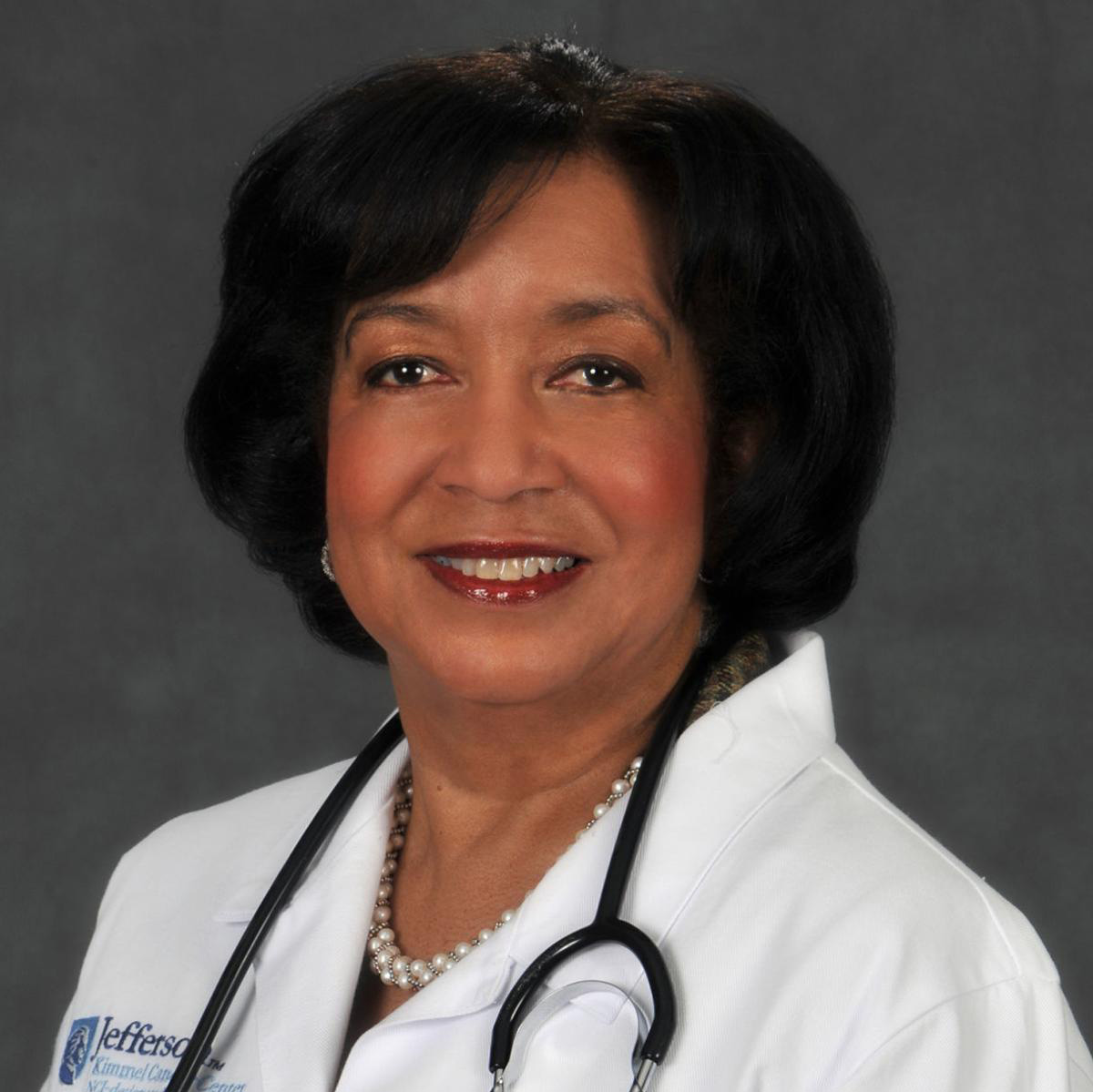
Now Enrolling: ComboMATCH (EAY191) Treatment Trial E5 for Patients with KRAS G12C Mutant Solid Tumors
February 9, 2024
From the Co-Chairs, February 2024
February 9, 2024Remembering Edith Peterson Mitchell, MD

In Memoriam

We mourn the passing of our dear colleague and friend, Edith Mitchell, MD, MACP, FCCP, FRCP (London), on January 21, 2024. Dr. Mitchell (pictured) was a national leader in many disciplines and policy areas, a proponent throughout her career of civil rights, inclusiveness, and anti-racism. She died while fully involved in the research and health equity priorities that helped to define her career, engaged, engaging, and always productive.
But merely recounting her career does not define the person, and Edith’s resilience, bravery, and embrace of a challenge is a more accurate reflection of the personality behind all these achievements. As she told it, her parents were surprised when, after a visit from a local Black doctor to her ill grandfather at a very early age, and hearing that this was the only medical care available to Black families, she announced that she would be a doctor. That intent did not waver as she followed that path in the segregated Tennessee of the ‘50s and ‘60s, through Tennessee State University for her undergraduate studies, culminating in her medical degree from Virginia Commonwealth University.
The discipline of medical oncology that she entered in her Georgetown fellowship was another challenge. A nascent specialty when Dr. Mitchell entered it, medical oncology had a characteristic that drew her: a high proportion of oncologists were involved in research of various kinds, and this direction would define her career. She was a font of ideas, which propelled her research in breast cancer and gastrointestinal malignancies. She incorporated these studies into a busy clinical practice at Thomas Jefferson University, where her patients were the beneficiaries of her warmth and expertise. Always attuned to promising directions in cancer research, she co-authored many cutting-edge trial papers, most recently as a co-investigator on the ECOG-ACRIN NCI-MATCH trial, for which she served as toxicity co-chair.
Her multi-dimensional interests took her to the role of flight surgeon in the United States Air Force (USAF), where she met her husband, Delmar. Maintaining an involvement with the Air National Guard, she had the opportunity to be promoted to brigadier general, but there was a problem. She didn’t have a pilot’s license. Undeterred, in her early 40s, she took on this new challenge, got her wings, and was duly promoted—becoming the first woman physician to achieve this rank in history. Del, who was an accomplished USAF pilot himself, must have been immensely proud. Sadly, she lost Del in 2021, and we commiserate with their two daughters, and their extended family, some of whom still live in Tennessee.
In parallel with her clinical care and clinical research activities, Dr. Mitchell did not forget from whence she came. In her 20s when Dr. King was assassinated, and after the passage of the Voting Rights Act, she was part of the gradual building of awareness and identification of racial and ethnic disparities through the ‘70s and ‘80s. She stood up in research meetings of ECOG, and later of ECOG-ACRIN, to point out disparities in patients’ inclusion on trials, and in minority inclusion in those conducting the trials. Those privileged to participate in these discussions remember the quiet but insistent dignity of her approach, and her candid assessment of remediation of these failings.
She was strategic in developing alliances that would drive progress. Thus, she and Dr. Comis together developed the Underserved Populations Committee in the early ‘90s (today the Health Equity Committee), and she partnered with the National Medical Association (NMA) to increase the profile of cancer care and research in the Black community. The NMA embraced and appreciated Dr. Mitchell’s resolve to bring both cutting-edge care and research together into underserved communities.
Her solutions were detailed and not left to others to carry out. Seeing that Black medical graduates, often weighed down by debt, were less likely to choose an academic career, she personally developed a program in ECOG-ACRIN to bring fellows, residents, and even medical students to meetings of the Group. This program has grown and expanded, has been endowed in her name as the Edith P. Mitchell, MD Health Equity Travel Scholarships to persist through the future. This program has been further enhanced by American Society of Clinical Oncology (ASCO) programs that dovetail with these travel scholarships.
She had a major focus in cancer prevention and screening. For a prostate cancer screening study some years ago, she secured the participation of Black church leaders in Philadelphia and went from one church to the next recruiting patients and obtaining blood samples. The NMA was integral to this success. For a breast cancer screening trial, she organized her sorority to drive a mammography bus through multiple cities in the South – this trial, as a result, has a 21% proportion of Black patients in the US, an unprecedented level of representation. When committed to a project, Edith got it done.
These efforts brought prominence and recognition. Her opinions were constantly sought for similar efforts in other institutions. She participated in multiple National Cancer Institute advisory committees, most recently on the Executive Committee for the Biden Moonshot, and as a member of the President’s Cancer Panel. She was recognized with awards from multiple scientific societies including the American Association of Cancer Research, ASCO, American Cancer Society, Alpha Kappa Alpha Sorority, Thomas Jefferson University, and the City of Philadelphia. She was elected President of the National Medical Association (perhaps her most treasured award), and the alliance between the NMA and ECOG-ACRIN continues productively to this day.
This tribute was originally published on ecog-acrin.org on February 2, 2024.
Related:
Obituary by The Cancer Letter
Obituary by The Philadelphia Inquirer
![ECOG-ACRIN logo[19516]275×75](https://blog-ecog-acrin.org/wp-content/uploads/2021/03/ECOG-ACRIN-logo19516275x75.png)
